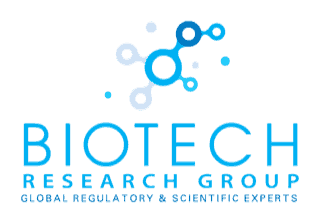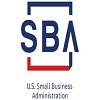What are Regulatory Affairs Services and How to Maintain Regulatory Compliance?
04/14/2020
Category: Other Blogs
Regulatory affairs services are used to comply with protecting public health, and they can contribute to the safety and efficacy of medical-related products. Some of the regulated areas a consultant can help with compliance include pharmaceuticals, medical devices, biologics, dietary supplements and cosmetics. Regulatory affairs services assist companies’ planning and management of these type of product development programs even after product launch in the U.S. marketplace. Qualified experts can provide consulting advice throughout the life-cycle of a regulated product.
The role of the regulatory professional
Regulatory professionals can assist with:
Keeping track of the ever-changing legislation in all the regions in which a company wishes to distribute its products.
Advising on rules, guidances and scientific information relating to marketing requirements.
Collecting, collating and evaluating scientific data (even adverse events).
Presenting and submitting product registration documents to agencies and carrying out any subsequent negotiations to obtain or maintain marketing authorization.
Giving strategic and technical advice to any level in their clients’ companies, making important contributions commercially and scientifically to forward the success of a program.
Helping the company avoid the problems caused by poorly kept records, inappropriate scientific thinking or sub-optimal presentation of data.
Designing or editing product-related packaging and advertising before it is used commercially.
Also Read: Best Consulting of COVID-19 Coronavirus Disease and The Best Treatments
Regulatory services
Some regulatory affairs services are noted in the following:
Drug Substance Services: DMF and Manufacturing
Drug Product Services:
Pre-IND and Pre-NDA meeting with FDA
Writing and compilation of INDs, NDAs, ANDAs, 505(b) (2) and supplements
eCTD submission
Providing the packages needed for approvals and clearances
Safety Surveillance
Regulatory support for clinical trials, Facility Inspections
CMC (Chemistry, Manufacturing, Control) and Pre-Clinical toxicology
Regulatory agency interaction and U.S. Agent Services
Case Report Form (CRF) and Protocol Writing or Editing
Product information labeling and derived advertising (PI, SPC, PILs)
RLD Sample Procurement
Product Life Cycle Managements Regulatory compliance
Regulatory compliance should be an organization’s goal to follow the rules, laws, regulations, guidelines, and specifications relevant to its business processes for a specific medically relevant product. Violations of regulatory compliance regulations often result in legal ramifications including federal fines.
Why regulatory compliance is a big deal
Rules have have become more complicated since the turn of the century, and regulatory compliance management has out of necessity become more prominent in a variety of organizations. A primary function to fill these roles is to hire employees whose sole focus is to make sure the organization conforms to stringent, complex legal mandates and applicable laws. Regulatory consultants can substitute for some of these roles or bolster the current organization.
Regulatory compliance processes
• Regulatory compliance processes and strategies guide organizations as they strive to attain their marketing business goals. Auditing ensures compliance.
• These compliance processes builds confidence in the processes of the business, as well as can potentially improve the profitability of the company.
• Some regulatory compliance rules are designed specifically to secure data protection. Poor data compliance processes can hurt qualification, customer retention and the company’s bottom line.
Challenges with compliance
Compliance rules can be costly from an infrastructure and personnel standpoint. As companies are required to spend capital in order to comply with compliance laws and regulations, they try to appease stakeholders and maintain business processes by turning a profit. These financial challenges surrounding compliance highlight the need to plan as best possible from the beginning of the process. These are some ideas to maintain regulatory compliance:
• Determining how emerging or new regulations will influence the business direction and possibly change the existing business model.
• Incorporating and developing a compliance culture that values adherence and the benefits as well as promoting this type of culture throughout the organization.
• Hiring permanent compliance roles (internal or outsourced) and having in place compliance functions that fulfill the legal, compliance, audit and business departments’ needs.
tagging: biologics development services > Regulatory affairs > regulatory compliance


